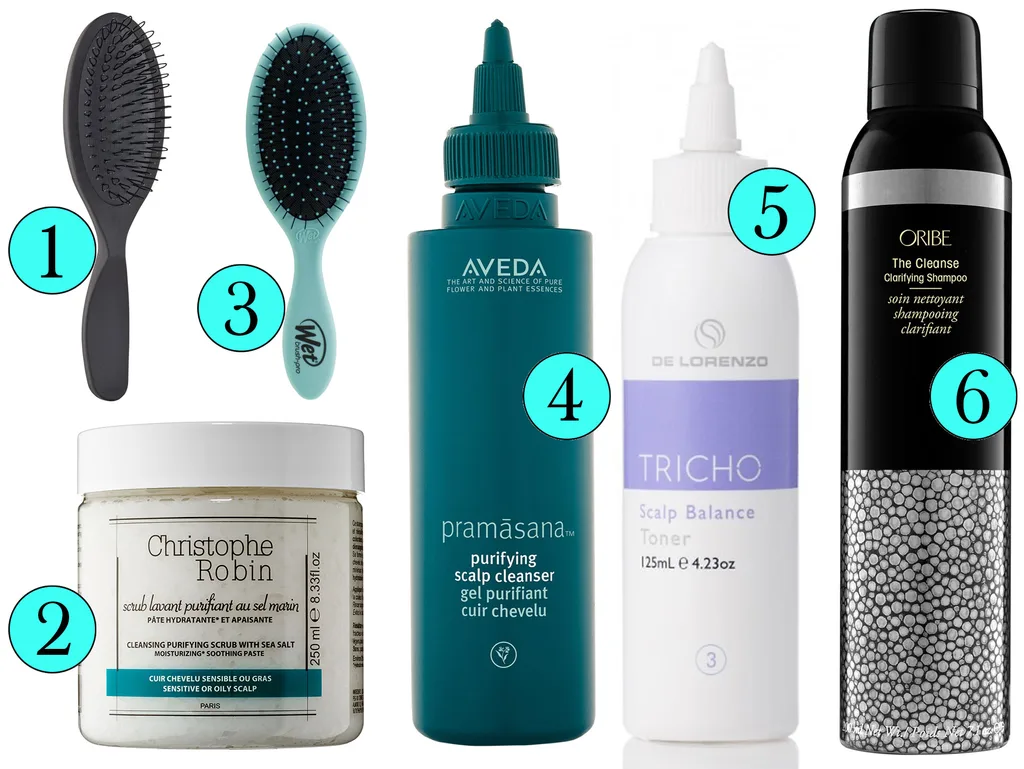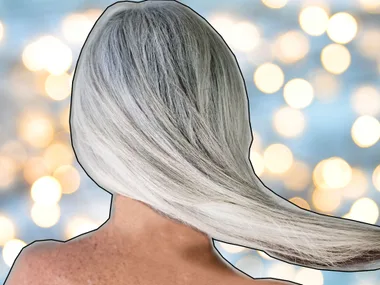Winter is a tough time for hair – and your scalp. Dry, tight, tender, scaly, flaky, itchy or hormonal oiliness are all scalp problems women might experience in the cooler weather.
“Colder temperatures, low humidity and excessive indoor heating can lead to a dry and irritated scalp in winter,” says dermatologist Dr Penny Alexander for Head & Shoulders. “Frequent washing with harsh shampoos not specifically designed to treat the problem may make the symptoms worse.”
You may not realise it, but your face can help predict how your scalp will behave. That’s because the skin on your face is similar to the skin on your scalp, so if you have dry, flaky cheeks, chances are your scalp will be the same. This means you should treat your scalp the same way you treat your face; with specialist products tailored to the issue at hand.

^ Yes, you – after you discover the right treatment.
What causes a dry or oily scalp?
“A very dry scalp means there are not enough natural oils (sebum) on the scalp and sebum performs a very special function, providing antibacterial protection, pH balance and lubrication for the hair,” says Megan Yabsley, Education Manager at De Lorenzo. Yabsley add that “an excess of oil can cause the opposite, by irritating the scalp and making the hair look unsightly.”
Getting the balance of natural sebum on your scalp is hard, and there’s no exact science to it.
“A balanced diet and healthy lifestyle will factor in the health of the scalp,” says Sydney-based hair stylist Barney Martin.
Why my scalp is itchy? Is it psoriasis or dandruff?
An itchy scalp can be caused by a number of concerns, from a reaction to a specific product, an overly dry or oily scalp or even psoriasis or dandruff. Check with your hairdresser who may be able to offer a simple solution to your discomfort, however for more serious conditions your GP is the next course of action.
Often a topical treatment such as a scalp-specific shampoo and conditioner will be able to help relieve any itchiness or redness.
How often should I wash my hair then?
The ‘no shampoo’ trend might be gaining popularity, but it actually could be causing more harm then good when it comes to a healthy scalp.
“The hair tends to trap pollutants, dead skin cells and sebum making it an environment that is dark, warm and with an abundance of yeast and bacteria that will multiply given the right conditions,” says Yabsley, shutting down the theory that not washing your hair is actually good for it. “Therefore, it is important to shampoo regularly as long as you do it with a product that is gentle and proven safe for long-term use.”
Martin echos these thoughts, recommending we “wash the hair at least every few days to cleanse the scalp and remove dead skin.”
Massage is also an easy way to reduce scalp issues as this will “stimulate the scalp and aid blood circulation,” says Martin. It will also help distribute product throughout your hair and lift and remove any build up of dead skin cells.
Use your finger tips (not your nails) or a specialised brush next time you’re shampooing, and massage your scalp in circular motions from the nape of your neck all the way around your hair line. Add more water and continue to lather the product while massaging until you get everywhere on your scalp. Ensure you rinse out the shampoo and conditioner thoroughly, to avoid excess product stuck on your scalp.
Brushing your hair when it’s dry will also help “to distribute the natural oils,” says Martin.
A massage also goes beyond stimulating your hair follicles, it can also help your mental wellbeing and aid relaxation.
“Many scalp disorders are related to stress and of course relaxing scalp massage will only help to alleviate stress levels,” Yabsley says.
Try these products for a healthy scalp

1. Aveda pramasana exfoliating scalp brush, $49
2. Christophe Robin Cleansing Purifying Scrub with Sea Salt, $66.80
3. Wet Brush Detangling Hair Brush in Pastel Aqua, $16.95
4. Aveda pramasana purifying scalp cleanser, $49
5. De Lorenzo Tricho Scalp Balance Toner, $27.50
6. Oribe The Cleanse Clarifying Shampoo, $58

.gif?resize=380%2C285)

